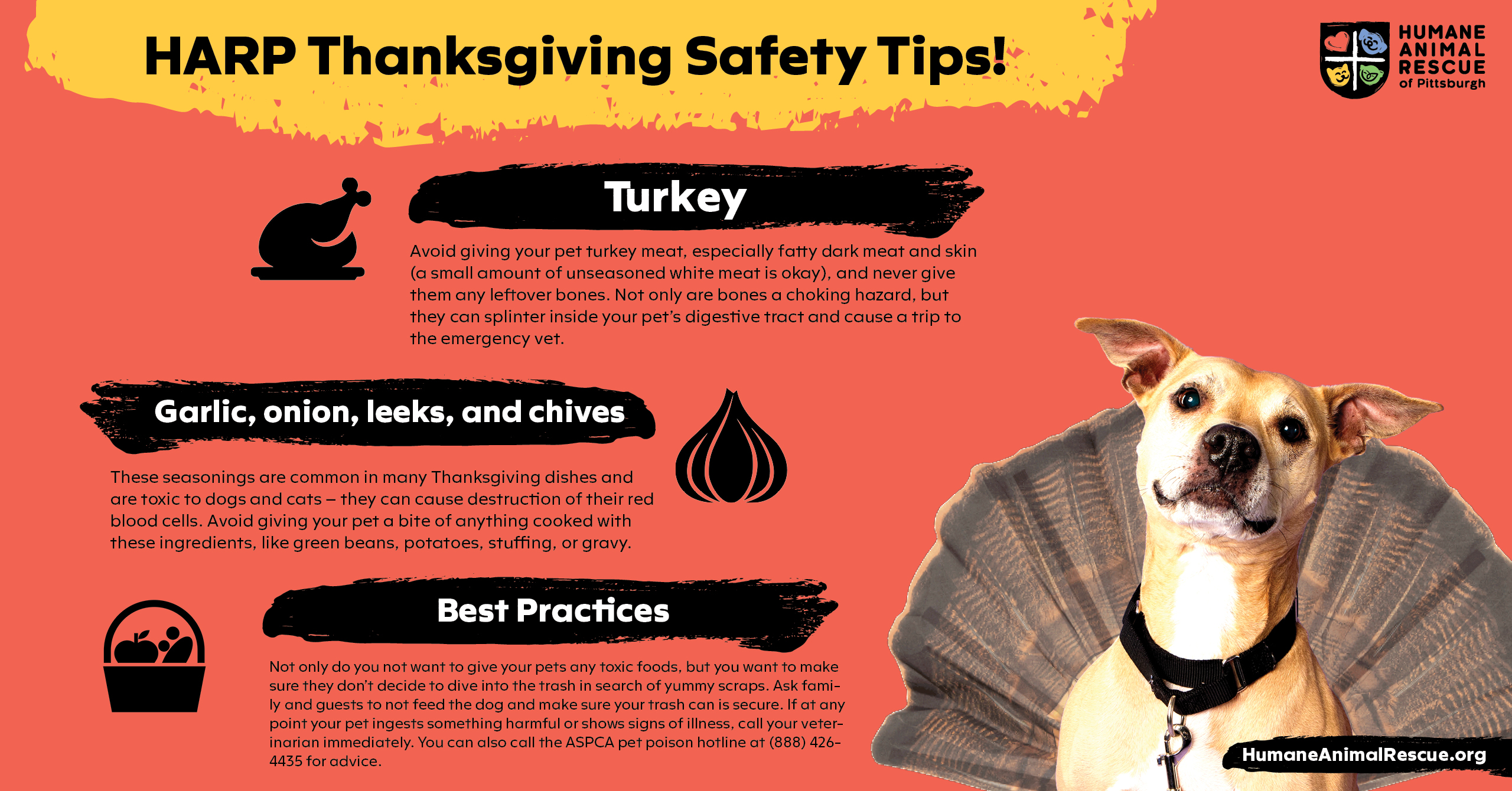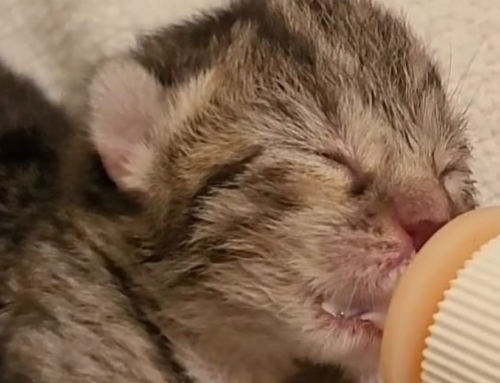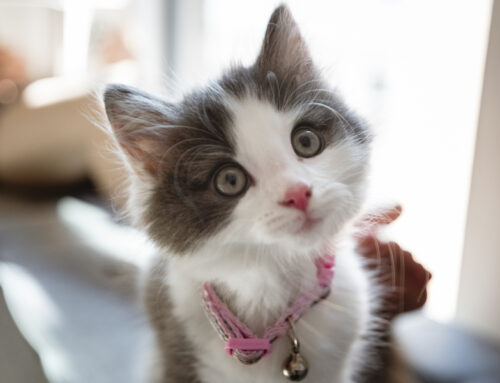Thanksgiving is a time centered on friends, family, and food. “While it’s tempting to include our furry family members in the feast, Thanksgiving can carry some hazards for our pets,” cautions Humane Animal Rescue of Pittsburgh (HARP)’s experts.
To help make sure Thanksgiving is a positive experience for people and pets alike, Humane Animal Rescue of Pittsburgh offers these tips:
- Turkey. Avoid giving your pet turkey meat, especially fatty dark meat and skin (a small amount of unseasoned white meat is okay), and never give them any leftover bones. Not only are bones a choking hazard, but they can splinter inside your pet’s digestive tract and cause a trip to the emergency vet.
- Garlic, onion, leeks, and chives. These seasonings are common in many Thanksgiving dishes and are toxic to dogs and cats – they can cause destruction of their red blood cells. Avoid giving your pet a bite of anything cooked with these ingredients, like green beans, potatoes, stuffing, or gravy.
- Unbaked dough containing yeast. Unbaked yeast dough can cause a stomach blockage if eaten because the yeast in the dough makes it rise and expand. Plus, the natural fermentation of the yeast in your cat or dog’s stomach can cause alcohol poisoning. If you plan on baking some delicious dinner rolls for Thanksgiving, make sure to proof your dough somewhere that your pet can’t get to it, such as in a turned-off oven or microwave, not right on the counter where it’s often in your pet’s easy reach.
- Desserts. Desserts like pies, fruitcakes, or cookies should be kept out of your pet’s reach as well. Many people know that chocolate is toxic for dogs and cats, but so are raisins, currants, and the popular sugar-substitute xylitol. Xylitol, even in small amounts, is toxic to dogs, so keep that slice of keto-friendly/diabetic-friendly/sugar-free pie to yourself.
- Rich, fatty foods. Many holiday favorites—such as butter, cream, gravy, bacon, and turkey skin can result in much more than an upset stomach for pets—it can cause a painful and serious condition known as pancreatitis, inflammation of the pancreas. It is extremely painful and must be treated immediately.
Not only do you not want to give your pets any toxic foods, but you want to make sure they don’t decide to dive into the trash in search of yummy scraps. Ask family and guests to not feed the dog and make sure your trash can is secure. If at any point your pet ingests something harmful or shows signs of illness, call your veterinarian immediately. You can also call the ASPCA pet poison hotline at (888) 426-4435 for advice.
Feed them pet-friendly food options instead. While the list of foods to avoid might seem overwhelming, there are a few great options for some pet-friendly Thanksgiving treats. Raw fruits and vegetables like baby carrots, green beans, apples, chunks of sweet potato, or pumpkin puree (not the sweetened, spiced pie filling) are great options.
By practicing these Thanksgiving pet safety tips, you and your pet can enjoy a safe and happy holiday.





